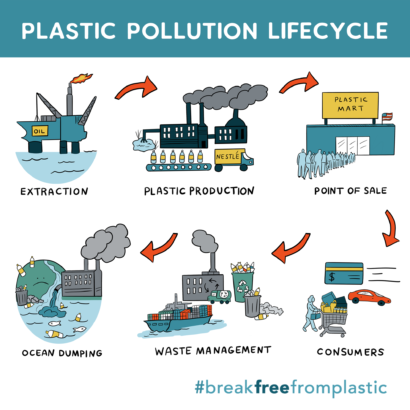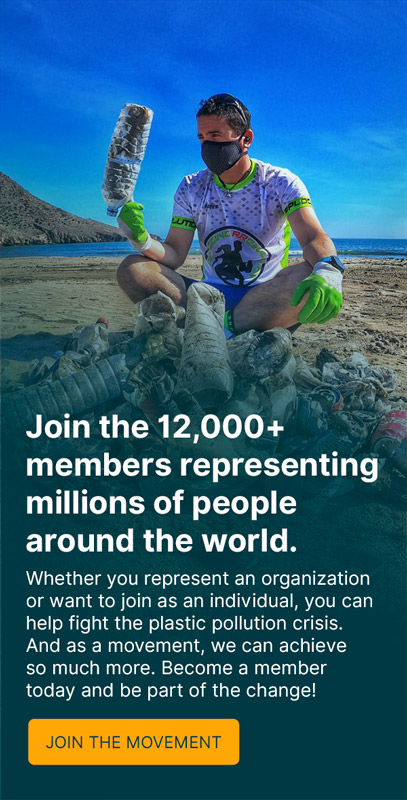[et_pb_section bb_built="1" admin_label="section" _builder_version="3.0.98" custom_margin="|||" custom_padding="0px|||"][et_pb_row admin_label="row" _builder_version="3.0.47" background_size="initial" background_position="top_left" background_repeat="repeat"][et_pb_column type="4_4"][et_pb_text _builder_version="3.0.98" background_size="initial" background_position="top_left" background_repeat="repeat" background_layout="light"]
International #breakfreefromplastic movement strategy conference in Bangkok in July 2019 with over 120 leaders from 25 countries. The meetings were facilitated by OAEC Executive Director, Dave Henson.
Since its launch in September 2016, nearly 1,500 organizations from across the world have joined the Break Free From Plastic (BFFP) movement to demand massive reductions in single-use plastics and to push for lasting solutions to the plastic pollution crisis. These organizations share the common values of environmental protection and social justice, which guide their work at the community level and represent a global, unified vision.
International Convenings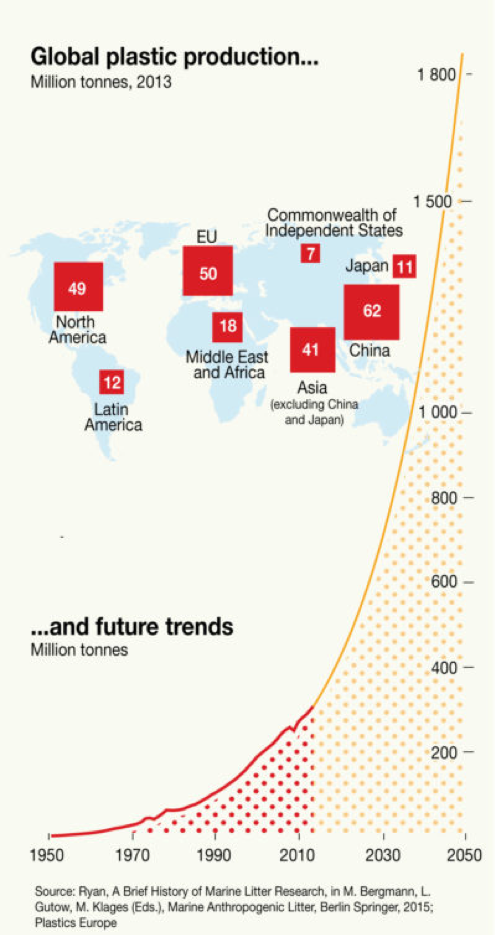
For the past two years, OAEC’s Executive Director Dave Henson has served as a lead facilitator and strategy consultant for BFFP US and for BFFP Global convenings. Dave recently facilitated a BFFP global strategy meeting in Thailand, and is prepping to facilitate the BFFP US national strategy meeting next month. Dave brings to this work decades of experience co-convening and facilitating strategy development for social justice and environmental movements. He is optimistic because of how nearly universally people feel that ‘we don’t need all this plastic!’
OAEC is excited to work with the BFFP movement because it is focusing on addressing the plastic pollution problem at the point of production. Yes, each of us can choose to reduce the amount of plastic we buy and use, and we all can be much better at recycling those types of plastic that actually can and will be recycled, but this crisis will not be solved by “consumer action”. Half of the plastic that has ever existed was made since 2005. The fossil fuel extraction industry and chemical manufactures are planning to double again plastic production by 2025 with an influx of raw materials supplied by new fracking operations. That is unacceptable. BFFP seeks to keep fossil fuels in the ground and to force companies to dramatically reduce – not expand – the amount of plastic being produced.
BFFP groups focusing on the plastic pollution end of the supply chain, including stopping plastic incineration and plastic dumping into our oceans and waterways, are standing together with groups on the frontlines of extraction. Likewise, groups fighting against gas and oil fracking, petrochemical processing, and plastic manufacturing are getting behind campaigns like Zero Waste Communities and winning municipal bans on single-use plastic. Together, we are coordinating our strategy and unifying the messaging towards our perspective, very different audiences.
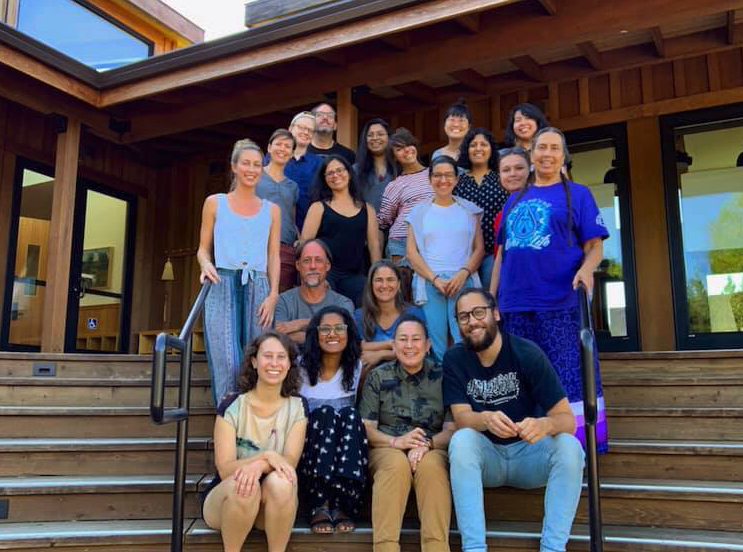
Shifting the Narrative Workshop at OAEC
In August 2019 here at OAEC, #breakfreefromplastic Senior Communications Officer Shilpi Chhotray and Lauren Moore of UPSTREAM organized an “Environmental Justice Culture Hack” storytelling workshop geared at highlighting the stories of frontline communities who are feeling the toxic impacts of plastic pollution at every level of the supply chain. The workshop, led by the Center for
Story Based Strategy, brought together environmental justice organizers with communications strategists. The goal is to creatively shift the narrative of plastics as a “litter” problem focused on individual responsibility to a story of corporate accountability for the gross injustices of oil extraction and manufacturing of fossil fuel-based products. Ultimately, colonialism and the excesses of capitalism are at the root of the fight against plastics.
Compelling examples of this narrative shift were shared throughout the gathering. Stiv Wilson, movement strategist and documentary filmmaker with Story of Stuff opened with a sneak preview of the new, soon-to-be-released documentary Story of Plastic. Shilpi Chhotray presented some of the top trending graphics, memes, and hashtags such as the simple “straws to pipelines” gif shown at the top and all the images included in this post. Check out #breakfreefromplastic’s instagram stories for interviews of environmental justice activists whoparticipated in the gathering, including Yvette Arellano from T.E.J.A.S., Ponca Nation elder Casey Horineck, Whitney Amaya of East Yard Communities for Environmental Justice, Tricia Cortez of Rio Grande International Study Center and others.
One of #breakfreefromplasic’s social media success stories has been the highly influential brand audit campaign. Launched last year, environmental groups conducting beach clean-ups around the world were asked to take methodical records of which brands were most prevalent and post pictures with the hashtag #isthisyours?. Not only was the social media reach of the images off-the-charts, the detailed report that BFFP generated based on the data revealed the names of top polluters including Unilever, Nestle, Proctor and Gamble, and PepsiCo – traceable proof of who is responsible.
According to BFFP member organization GAIA (Global Alliance for Incinerator Alternatives), “This research provides new quantitative evidence to support the global call for the plastics industry and manufacturing companies to immediately reduce and eventually stop producing single-use plastics as the primary solution to end plastic pollution.” BFFP and member groups have presented this report to the heads corporations and have the following demands – the 3 R’s Reveal, Reduce, and Reinvent!
 Ok, so recycling isn’t enough. How can I do more?
Ok, so recycling isn’t enough. How can I do more?
1) Educate yourself. These mini-documentaries by Story of Stuff are a great place to start. Go deeper with these articles by Center for International Environmental Law. We highly recommend the Just Transition framework beautifully described and dreamed up by the amazing folks at Climate Justice Alliance and our friends at Movement Generation.
2) Follow the leadership of frontline communities. Your solidarity is especially effective when you take collective action around issues effecting your home bioregion.
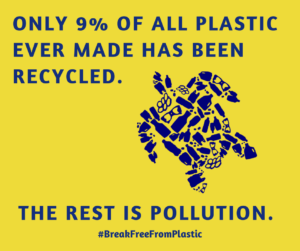 3) Vote. Support legislation and candidates that hold polluters accountable.
3) Vote. Support legislation and candidates that hold polluters accountable.
4) Aspire to live “throw-away-free” and use your creativity to imagine and promote what Zero Waste could look like in your household, business or community. Zero Waste is not just for rich people!
5) Participate in or lead a local brand audit.
6) Join the conversation by following #breakfreefromplastic on instagram, twitter, or facebook and share your story!
Article Originally posted on Occidental Arts and Ecology Center. All images courtesy of #breakfreefromplastic.
[/et_pb_text][/et_pb_column][/et_pb_row][/et_pb_section]

